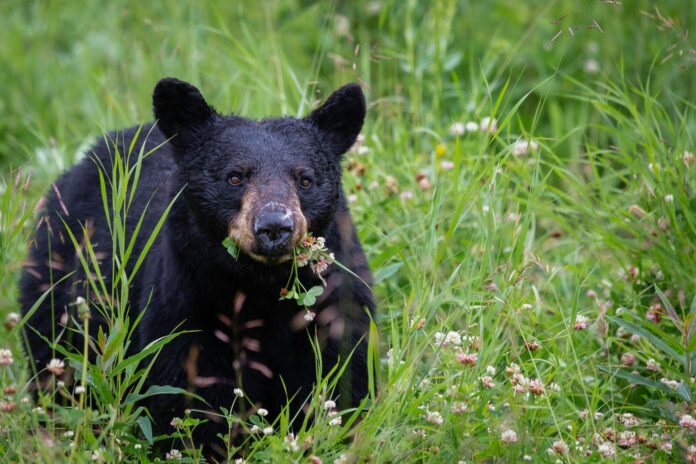“We are striving toward human wildlife coexistence, so trying to look for those ways we can all live together.”
That is from Rob Found, wildlife ecologist for Waterton Lakes National Park.
Found encourages all outdoor enthusiasts to understand the risks that come with wildlife interactions, and the ways you can safely enjoy seeing wildlife in their natural habitat.
He spoke with Vista Radio after two campsites in Waterton were closed following a close encounter with a cougar earlier this month.
READ MORE: Campground closures in effect after cougar encounter in Waterton
The campsites have since reopened, but a warning remains in place for users.
Although encounters with bears are the most common occurrence in Waterton, Found says visitors need to be prepared to bump into other creatures like cougars, bighorn sheep and deer. “It is June, so we are into the deer fawning season,” he states.
“We do have some other encounters through this month with mothers that are quite protective of their fawns, and can get aggressive toward people, in particular can get aggressive to people with their dogs as well, so that’s actually one of the main townsite specific risks that we have right now.”
BE PROACTIVE
Found says one simple step to avoiding conflict with wildlife is to be proactive and aware of your surroundings.
He adds that situational awareness is key, and it is important to avoid startling wildlife, and animals can take being startled as a threat.
Found suggests avoiding wearing headphones while you are on a hike in the backcountry, especially during higher risk periods.
“Dawn and dusk are higher risk periods for predators, such as cougars that do hunt principally at those times,” he says.
Found notes being proactive includes taking steps like carrying bear spray, traveling in a group and being loud to alert any wildlife of your presence. He adds that runners and cyclists can be more at risk of sudden and negative encounters due to startling animals.
“You just come up to them so fast. They didn’t get a chance to smell or hear you and then suddenly you’re on them and then they are more [reactive] and [don’t have] that time to think, ‘there’s a person coming, I’m going to get out of here’,” Found says.
“So, it’s just giving the wildlife the chance to respond in a positive way, so you don’t have those negative encounters.”
DOGS
In the recent instance of campgrounds being closed, officials said a cougar got too close for comfort with campers’ dog.
Found notes, “Dogs are a risk factor, so make sure they’re on a leash.”
He says even in a day-use area, having a dog on a leash is not only helpful for the dog and the owner, but the surrounding wildlife as well.
“We’ve had incidents where an off-leash dog sees a deer and then chases the deer and deer have been injured, and now we have an injured deer in the town,” Found says.
“Even if it didn’t turn poorly for the dog, it’s bad for the deer as well and now it can be a mother that’s separated from a fawn, [or] it could be a dog chasing after the fawn.”
RESPECTING WILDLIFE
Found says it is a shared responsibility between staff and visitors alike to respect the space of wildlife, so everyone can enjoy the park safely.
He adds that so much of the wildlife in Waterton has become habituated to the area, so some guests will believe they are docile creatures that can be approached.
“That can lead to some ecological problems, where we have bighorn sheep attracted to human disturbed areas where they maybe congregate and they can actually become more vulnerable to predators or to being hit in collisions on roadways because they’re not afraid of being near the vehicles,” Found explains.
“We have a very high density of deer in the town, which actually creates a bit of a reservoir for certain disease transmission, like if we ever do and we possibly will, get chronic wasting disease in Waterton, that could be an issue with having these wildlife that have been habituated to people.”
WILDLIFE CORRIDOR
Found says the area around the historic Prince of Whales Hotel, and Waterton townsite, is situated in the middle of a wildlife corridor.
“It’s an important corridor for animals to travel through,” he remarks.
“It is one of the main reasons why there are a lot of encounters with wildlife in Waterton because of these narrow wildlife travel corridors and it is important for us to maintain this so they can continue their movements, but that is why it does raise this importance of human wildlife coexistence in this area, and the [Prince of Whales] Hotel is a perfect example just because it is right in the middle of this important wildlife corridor.”
More wildlife safety tips are available at the Parks Canada website.







